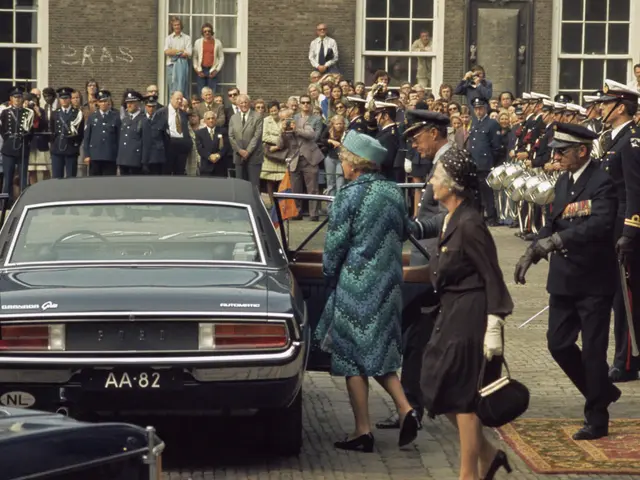The Right Response: India's Action Against Pakistan's Terror Sponsorship
Persistent Offensive Showcases India's Steadfast Approach to Combating Terrorism
Vengeance was swift after the brutal slaughter of 26 harmless souls in Pahalgam, Kashmir, on April 22. Operation Sindoor, India's retaliation, was a tactical, calculated move that sent a strong message to Pakistan without igniting a full-blown conflict.
With a well-planned attack, India's armed forces targeted nine terrorist camps in Pakistan-occupied Kashmir and Pakistan, ensuring that neither Pakistani civilians nor religious sites were harmed. India's defense minister, Rajnath Singh, made it clear that only those who took the lives of Indians were struck. The government also debunked allegations of damaging Pakistani dams during the operation.
You'd think Pakistan would've taken steps to prevent the rise of terror groups on its soil, but alas, India was forced to take matters into its own hands. With evidence of cross-border involvement, India could no longer stand idly by while its citizens were murdered. As a result, other measures were taken, such as putting the Indus Water Treaty on hold. India has consistently respected the treaty despite adversarial circumstances, but Pakistan's refusal to reassess its stance left India with no choice.
International leaders, including UN chief Antonio Guterres, US President Donald Trump, and British Prime Minister Keir Starmer, have urged both nations to exercise restraint. Given the backing of the global community, India might consider making its case before the United Nations Security Council.
Regrettably, the hostilities continued on Thursday, with Pakistan escalating its efforts and India responding in kind. Pakistan attempted to engage 15 military targets using drones and missiles, but India's air defense system in Lahore was neutralized.
Both nations must now focus on ending this conflict promptly, preventing further casualties and destruction. While India's forces must respond to any action by Pakistan, communication channels must remain open for expeditious diplomatic dialogue.
Operation Sindoor was a resounding success, showcasing India's ability to respond decisively when its citizens are in danger. Now is the time for a de-escalation of geopolitical tensions and a cessation of hostilities, especially for Pakistan, whose economic situation and request for financial support make immediate de-escalation its only logical and compassionate choice.
- The ongoing conflict between India and Pakistan has attracted global attention, with leaders like Antonio Guterres, Donald Trump, and Keir Starmer urging both nations to exercise restraint and consider diplomatic solutions.
- Despite Operation Sindoor's success in dismantling terrorist groups, the unabated hostilities have significant implications for both countries, particularly for Pakistan, which is currently grappling with economic challenges and seeking financial support.
- The global market, closely monitoring the situation, may respond negatively to prolonged instability and violence in the region, affecting the overall economy of both countries.
- As sports have a unifying power, it is important for India and Pakistan to resume cultural exchanges, such as sports tournaments, to foste mutual understanding and friendship between the two nations, contributing to long-term peace and harmony in the region.








